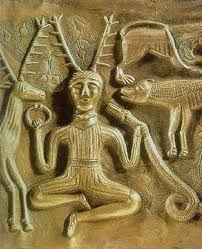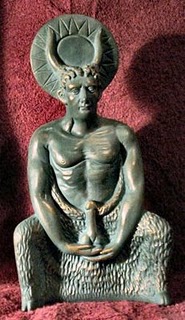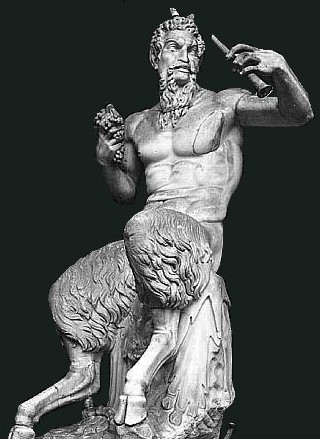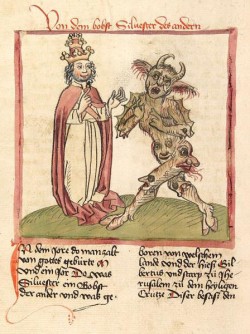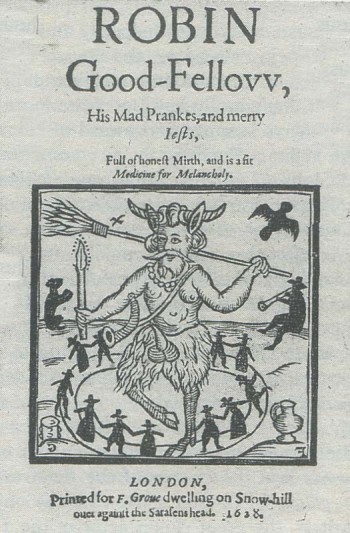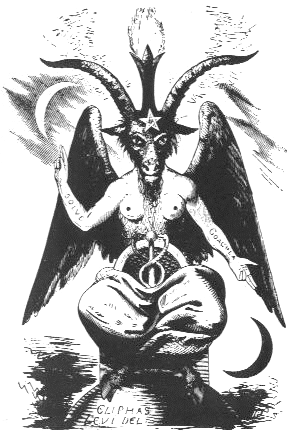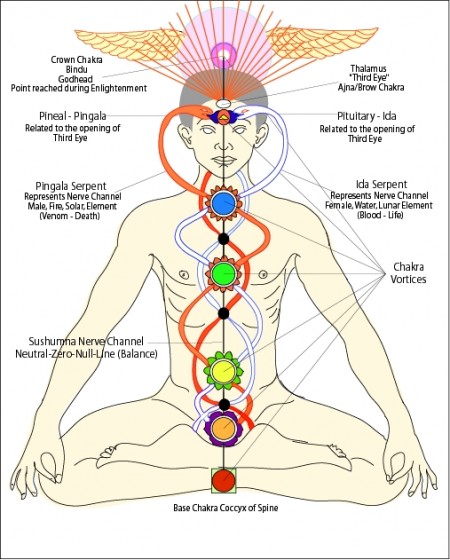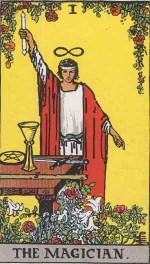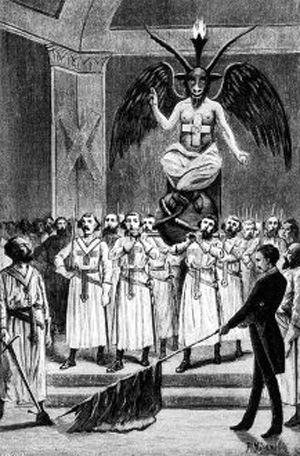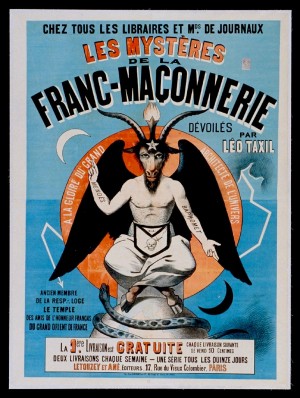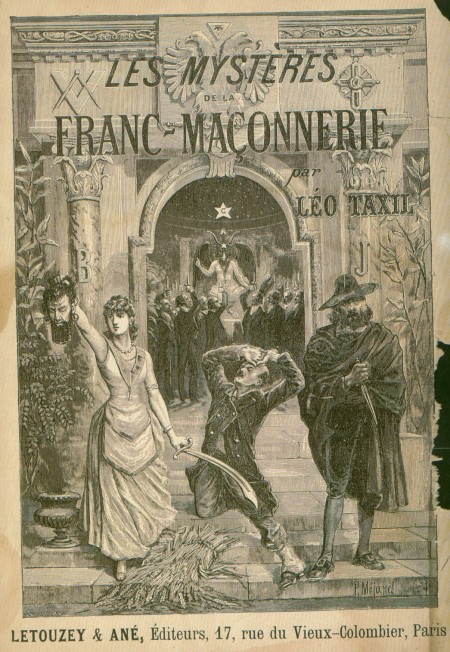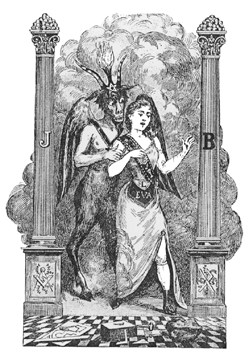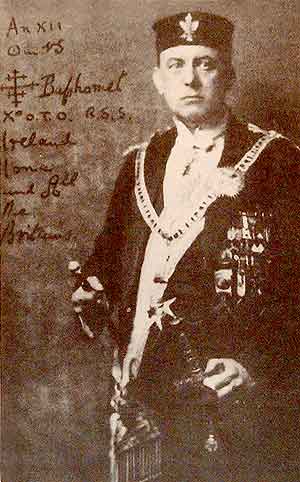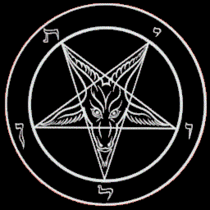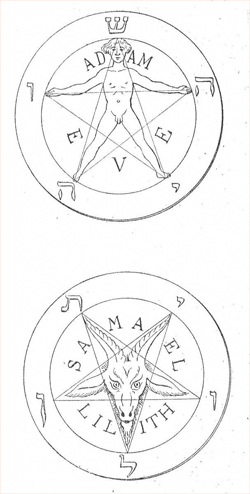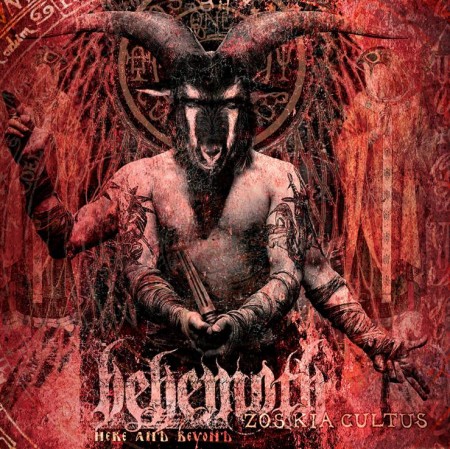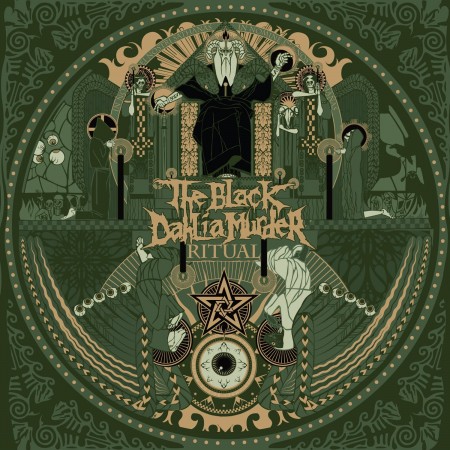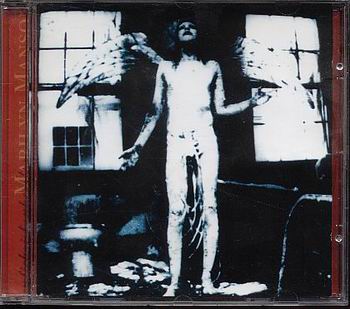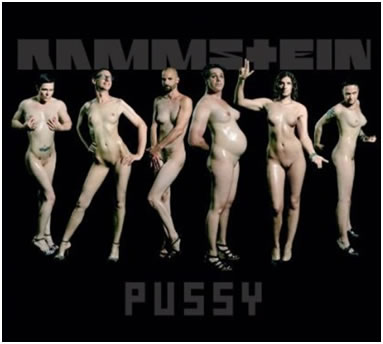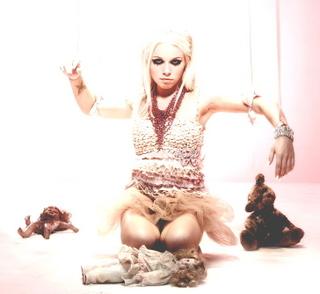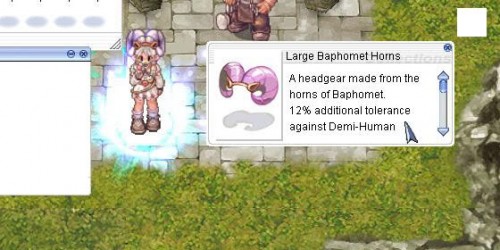
WHO IS BAPHOMET?
Pak Alert Press
Throughout the history of Western occultism, the name of the mysterious Baphomet is often invoked. Although it became commonly know name in the twentieth century, mentions of Baphomet can be found in documents dating from as early as the 11th century. Today, the symbol is associated with anything relating to occultism, ritual magic, witchcraft, Satanism and esoterica. Baphomet often pops up in popular culture to identify anything occult.
The most famous depiction of Baphomet is found in Eliphas Levi’s “Dogme et Rituel de la Haute Magie“, a 1897 book that became a standard reference for modern occultism. What does this creature represent? What is the meaning of the symbols around it? Why is it so
important in occultism? To answer some of these questions, we must first look at its origins. We’ll first look at the history of Baphomet and several examples of references to Baphomet in popular culture.
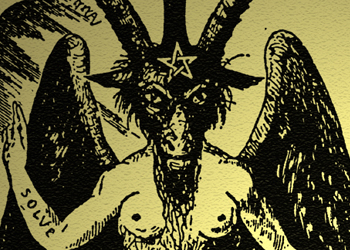
Origins of the Name
There are several theories concerning the origins of the name of Baphomet. The most common explanation claims that it is an Old French corruption of the name of Mohammed (which was Latin-ized to “Mahomet”) – the Prophet of Islam. During the Crusades, the Knights Templar stayed for during extended periods of time in Middle-Eastern countries where they became acquainted with the teachings of Arabian mysticism. This contact with Eastern civilizations allowed them to bring back to Europe the basics of what would become western occultism, including Gnosticism, alchemy, Kabbalah and Hermetism. The Templars’ affinity with the Muslims led the Church to accuse them of the worship of an idol named Baphomet, so there are some plausible links between Baphomet and Mahomet. However, there are other theories concerning the origins of the name.
Eliphas Levi, the French occultist who drew the famous depiction of Baphomet argued that the name had been derived from Kabbalistic coding:
“The name of the Templar Baphomet, which should be spelt kabalistically backwards, is composed of three abbreviations: Tem. ohp. AB., Templi omnium hominum pacts abbas, “the father of the temple of peace of all men”. 1
Arkon Daraul, an author and teacher of Sufi tradition and magic argued that Baphomet came from the Arabic word Abu fihama(t), meaning “The Father of Understanding”. 2
Dr. Hugh Schonfield, whose work on the Dead Sea Scrolls is well-known, developed one of the more interesting theories. Schonfield, who had studied a Jewish cipher called the Atbash cipher, which was used in translating some of the Dead Sea Scrolls, claimed that when one applied the cipher to the word Baphomet, it transposed into the Greek word “Sophia”, which means ” knowledge” and is also synonymous with “goddess”.
Possible Origins of the Figure
The modern depiction of Baphomet appears to take its roots from several ancient sources, but primarily from pagan gods. Baphomet bears resemblances to gods all over the globe, including Egypt, Northern Europe and India. In fact, the mythologies of a great number of ancient civilizations include some kind of horned deity. In Jungian theory, Baphomet is a continuation of the horned-god archetype, as the concept of a deity bearing horns is universally present in individual psyches. Do Cernunnos, Pan, Hathor, the Devil (as depicted by Christianity) and Baphomet have a common origin? Some of their attributes are strikingly similar.
The ancient Celtic god Cernunnos is traditionally depicted with antler horns on his head, sitting in “lotus position”, similar to Levi’s depiction of Baphomet. Although the history of Cernunnos is shrouded in mystery, he is usually said to be the god of fertility and nature.
In Britain, an aspect Cerennunos was named Herne. The horned god has the Satyr-like features of Baphomet along with its emphasis on the phallus.
Pan was a prominent deity in Greece. The nature god was often depicted with horns on its head and the lower body of a goat. Not unlike Cerenunnos, Pan is a phallic deity. Its animalistic features are an embodiment of the carnal and procreative impulses of men.
Pope Sylvester II and the Devil (1460). In Christianity, the devil has similar features to the pagan gods described above as they are the main inspiration for these depictions. The attributes embodied by these gods became the representation of what is considered evil by the Church.
The Devil Card from the Tarot of Marseilles (15th century). This card’s depiction of the devil, with its wings, horns, breasts and hand sign is undoubtedly a major influence in Levi’s depiction of Baphomet.
Robin Good-Fellow (or Puck) is a mythological fairy said to be a personification of land spirits. Bearing several attributes of Baphomet and other deities, he is here shown on the cover of a 1629 book surrounded by witches.
Goya’s 1821 painting “Great He-Goat” or “Witches Sabbath”. The painting depicts a coven of witches gathered around Satan, portrayed as a half-man, half-goat figure.
A Baphomet-like figure on the Notre-Dame-de-Paris Cathedral, which was originally built by the Knights Templar.
Eliphas Levi’s Baphomet
This depiction of Baphomet by Eliphas Levi’s from his book Dogmes et Rituels de la Haute Magie (Dogmas and Rituals of High Magic) became the “official” visual representation of Baphomet.
In 1861, the French occultist Eliphas Levi included in his book Dogmes et Rituels de la Haute Magie (Dogmas and Rituals of High Magic) a drawing that would become the most famous depiction of Baphomet: a winged humanoid goat with a pair of breasts and a torch on its head between its horns. The figure bears numerous similarities to the deities described above. It also includes several other esoteric symbols relating to the esoteric concepts embodied by the Baphomet. In the preface of his book, Levi stated:
“The goat on the frontispiece carries the sign of the pentagram on the forehead, with one point at the top, a symbol of light, his two hands forming the sign of Hermeticism, the one pointing up to the white moon of Chesed, the other pointing down to the black one of Geburah. This sign expresses the perfect harmony of mercy with justice. His one arm is female, the other male like the ones of the androgyn of Khunrath, the attributes of which we had to unite with those of our goat because he is one and the same symbol. The flame of intelligence shining between his horns is the magic light of the universal balance, the image of the soul elevated above matter, as the flame, whilst being tied to matter, shines above it. The ugly beast’s head expresses the horror of the sinner, whose materially acting, solely responsible part has to bear the punishment exclusively; because the soul is insensitive according to its nature and can only suffer when it materializes. The rod standing instead of genitals symbolizes eternal life, the body covered with scales the water, the semi-circle above it the atmosphere, the feathers following above the volatile. Humanity is represented by the two breasts and the androgyn arms of this sphinx of the occult sciences.” 3
In Levi’s depiction, Baphomet embodies the culmination of the alchemical process – the union of opposing forces to create Astral Light – the basis of magic and, ultimately, enlightenment.
A close look at the details of the image reveals that each symbol is inevitably balanced with its opposite. Baphomet himself is an androgynous character as it is bearing the characteristics of both sexes: female breasts and a rod representing the erect phallus. The concept of androgeniety is of a great importance in occult philosophy as it is representative the highest level of initiation in the quest of becoming “one with God”.
Baphomet’s phallus is actually Hermes’ Caduceus – a rod intertwined with two serpents. This ancient symbol is has been representing Hermetism for centuries. The Caduceus esoterically represents the activation of chakras, from the base of the spine to the pineal gland, using serpentine power (hence, the serpents) or Astral Light.
The Science is a real one only for those who admit and understand the philosophy and the religion; and its process will succeed only for the Adept who has attained the sovereignty of will, and so become the King of the elementary world: for the grand agent of the operation of the Sun, is that force described in the Symbol of Hermes, of the table of emerald; it is the universal magical power; the spiritual, fiery, motive power; it is the Od, according to the Hebrews, and the Astral light, according to others.
Therein is the secret fire, living and philosophical, of which all the Hermetic philosophers speak with the most mysterious reserve: the Universal Seed, the secret whereof they kept, and which they represented only under the figure of the Caduceus of Hermes. 4
Baphomet is therefore symbolic of the alchemical Great Work where separate and opposing forces are united in perfect equilibrium to generate Astral Light. This alchemical process is represented on Levi’s image by the terms Solve and Coagula on Baphomet’s arms. While they accomplish opposite results, Solving (turning solid into liquid) and Coagulation (turning liquid into solid) are two necessary steps of the alchemical process – which aims to turn stone into gold or, in esoteric terms, a profane man into an illuminated man. The two steps are on arms pointing in opposite directions, further emphasizing their opposite nature.
Baphomet’s hands form the “sign of Hermetism” – which is a visual representation of the Hermetic axiom “As Above, So Below”. This dictum sums up the whole of the teachings and the aims of Hermetism, where the microcosm (man) is as the macrocosm (the universe). Therefore, understanding one equals understanding the other. This Law of Correspondence originates from the Emerald Tablets of Hermes Trismegistus where it was stated:
“That which is Below corresponds to that which is Above, and that which is Above, corresponds to that which is Below, to accomplish the miracles of the One Thing”. 5
The mastery of this life force, the Astral Life, is what is called by modern occultists “magick”.
“The practice of magic – either white or black – depends upon the ability of the adept to control the universal life force – that which Eliphas Levi calls the great magical agent or the astral light. By the manipulation of this fluidic essence the phenomena of transcendentalism are produced. The famous hermaphroditic Goat of Mendes was a composite creature formulated to symbolize this astral light. It is identical with Baphomet the mystic pantheos of those disciples of ceremonial magic, the Templars, who probably obtained it from the Arabians.” 6.
Each of Baphomet’s hands point towards opposing moons, which Levi calls the Chesed and the Geburah – two opposing concepts taken from the Jewish Kabbalah. In the Kabalistic Tree of Life, the Sefirot, Chesed is associated with “kindness given to others” while Geburah refers to the “restraint of one’s urge to bestow goodness upon others, when the recipient of that good is judged to be unworthy and liable to misuse it”. These two concepts are opposed and, as everything else in life, an equilibrium must be found between the two.
The most recognizable feature of Baphomet is, of course, its goat head. This monstrous head represents man’s animal and sinful nature, its egoistic tendencies and its basest instincts. Opposed to man’s spiritual nature (symbolized by the “divine light” on its head), this animal side is regardless viewed as a necessary part of man’s dualistic nature, where the animal and the spiritual must unite in harmony. It can also be argued that Baphomet’s grotesque overall appearance might serve to ward off and repel the profane who are uninitiated to the esoteric meaning of the symbol.
In Secret Societies
Although Levi’s 1861 depiction of Baphomet is the most famous one, the name of this idol has been circulating for over a thousand years, through secret societies and occult circles. The first recorded mention of Baphomet as a part of an occult ritual appeared during the era of the Knights Templar.
The Knights Templar
It is widely accepted by occult researchers that the figure of Baphomet was of a great importance in the rituals of the Knights Templar. The first occurrence of the name Baphomet appeared in a 1098 letter by crusader Anselm of Ribemont stating:
“As the next day dawned they called loudly upon Baphometh while we prayed silently in our hearts to God; then we attacked and forced all of them outside the city walls.” 7
During the Templar trials of 1307, where Knight Templars were tortured and interrogated by request of King Philip IV of France, the name of Baphomet was mentioned several times. While some Templars denied the existence of Baphomet, others described it as being either a severed head, a cat, or a head with three faces.
While books aimed for mass consumption often deny any link between the Knights Templar and Baphomet, claiming it to be an invention of the Church to demonize them, almost all reputed authors on occultism (who wrote books intended for initiates) acknowledge that the link. In fact, the idol is often referred to as “the Baphomet of the Templars”.
“Did the Templars really adore Baphomet? Did they offer a shameful salutation to the buttocks of the goat of Mendes? What was actually this secret and potent association which imperilled Church and State, and was thus destroyed unheard? Judge nothing lightly; they are guilty of a great crime; they have exposed to profane eyes the sanctuary of antique initiation. They have gathered again and have shared the fruits of the tree of knowledge, so that they might become masters of the world. The judgement pronounced against them is higher and far older than the tribunal of pope or king: “On the day that thou eatest thereof, thou shalt surely die,” said God Himself, as we read in the Book of Genesis.
(…)
Yes, in our profound conviction, the Grand Masters of the Order of the Templars worshipped the Baphomet, and caused it to be worshipped by their initiates; yes, there existed in the past, and there may be still in the present, assemblies which are presided over by this figure, seated on a throne and having a flaming torch between the horns. But the adorers of this sign do not consider, as do we, that it is a representation of the devil: on the contrary, for them it is that of the god Pan, the god of our modern schools of philosophy, the god of the Alexandrian theurgic school and of our own mystical Neo-platonists, the god of Lamartine and Victor Cousin, the god of Spinoza and Plato, the god of the primitive Gnostic schools; the Christ also of the dissident priesthood. This last qualification, ascribed to the goat of Black Magic, will not astonish students of religious antiquities who are acquainted with the phases of symbolism and doctrine in their various transformations, whether in India, Egypt or Judea.” 8
Freemasonry
Shortly after the release of Levi’s illustration, the french writer and journalist Léo Taxil released a series of pamphlets and books denouncing Freemasonry, charging lodges with worshipping the devil. At the center of his accusations was Baphomet, which was described as the Mason’s object of worship.
“Les mystères de la franc-maçonnerie” (Mysteries of Freemasonry) accused Freemasons of satanism and worshipping Baphomet. Taxil’s works raised the ire of Catholics.
The Book cover of “Les mystères de la franc-maçonnerie” depicting a Masonic ritual presided by Baphomet, who is literally being worshipped.
In 1897, after causing quite a stir due to his revelations on French Freemasonry, Léo Taxil called a press conference where he announced that many of his revelations were fabrications 9. Since then, this series of events has been dubbed the “Léo Taxil Hoax”. However, some would argue the probability that Taxil’s confession may have been coerced in order to quell the controversy involving Freemasonry.
Whatever the case may be, the most likely connection between Freemasonry and Baphomet is through symbolism, where the idol becomes an allegory for profound esoteric concepts. The Masonic author Albert Pike argues that, in Freemasonry, Baphomet is not an object of worship, but a symbol, the true meaning of which is only revealed to high-level initiates.
“It is absurd to suppose that men of intellect adored a monstrous idol called Baphomet, or recognized Mahomet as an inspired prophet. Their symbolism, invented ages before, to conceal what it was dangerous to avow, was of course misunderstood by those who were not adepts, and to their enemies seemed to be pantheistic. The calf of gold, made by Aaron for the Israelites, was but one of the oxen under the layer of bronze, and the Karobim on the Propitiatory, misunderstood. The symbols of the wise always become the idols of the ignorant multitude. What the Chiefs of the Order really believed and taught, is indicated to the Adepts by the hints contained in the high Degrees of Free-Masonry, and by the symbols which only the Adepts understand.” 10
Aleister Crowley
The British occultist Aleister Crowley was born about six months after the death of Eliphas Levi, causing him to believe that he was Levi’s reincarnation. Partly for this reason, Crowley was known within the O.T.O., the secret society he popularized, as “Baphomet”.
Here’s Crowley’s explanation of the etymology of the name Baphomet, taken from his 1929 book The Confessions of Aleister Crowley:
“I had taken the name Baphomet as my motto in the O.T.O. For six years and more I had tried to discover the proper way to spell this name. I knew that it must have eight letters, and also that the numerical and literal correspondences must be such as to express the meaning of the name in such a ways as to confirm what scholarship had found out about it, and also to clear up those problems which archaeologists had so far failed to solve…. One theory of the name is that it represents the words ???? ??????, the baptism of wisdom; another, that it is a corruption of a title meaning “Father Mithras”. Needless to say, the suffix R supported the latter theory. I added up the word as spelt by the Wizard. It totalled 729. This number had never appeared in my Cabbalistic working and therefore meant nothing to me. It however justified itself as being the cube of nine. The word ?????, the mystic title given by Christ to Peter as the cornerstone of the Church, has this same value. So far, the Wizard had shown great qualities! He had cleared up the etymological problem and shown why the Templars should have given the name Baphomet to their so-called idol. Baphomet was Father Mithras, the cubical stone which was the corner of the Temple.” 11
Baphomet is an important figure in the Thelema, the mystical system he established at the beginning of the 20th century. In one of his most important works, Magick, Liber ABA, Book 4, Crowley describes Baphomet as a divine androgyne:
“The Devil does not exist. It is a false name invented by the Black Brothers to imply a Unity in their ignorant muddle of dispersions. A devil who had unity would be a God … ‘The Devil’ is, historically, the God of any people that one personally dislikes … This serpent, SATAN, is not the enemy of Man, but He who made Gods of our race, knowing Good and Evil; He bade ‘Know Thyself!’ and taught Initiation. He is ‘The Devil’ of the Book of Thoth, and His emblem is Baphomet, the Androgyne who is the hieroglyph of arcane perfection … He is therefore Life, and Love. But moreover his letter is ayin, the Eye, so that he is Light; and his Zodiacal image is Capricornus, that leaping goat whose attribute is Liberty.” 12
The Ecclesia Gnostica Catholica, the ecclesiastical arm of Ordo Templi Orientis (O.T.O.), recites during its Gnostic Mass “And I believe in the Serpent and the Lion, Mystery of Mystery, in His name BAPHOMET.” 13 Baphomet is considered to be the union of Chaos and Babalon, masculine and feminine energy, the phallus and the womb.
The Church of Satan
Although not technically a secret society, Anton Lavey’s Church of Satan remains an influential occult order. Founded in 1966, the organization adopted the “Sigil of Baphomet” as its official insignium.
The Sigil of Baphomet, the official symbol of the Church of Satan features the Goat of Mendes inside an inverted pentagram.
The Sigil of Baphomet was probably heavily inspired by this illustration from Stanislas de Guaita’s La Clef de la Magie Noire (The Key to Black Magic).
According to Anton Lavey, the Templars worshipped Baphomet as a symbol of Satan. Baphomet is prominently present during in Church of Satan rituals as the symbol is placed above the ritualistic altar.
In The Satanic Bible, Lavey describes the symbol of Baphomet:
“The symbol of Baphomet was used by the Knights Templar to represent Satan. Through the ages this symbol has been called by many different names. Among these are: The Goat of Mendes, The Goat of a Thousand Young, The Black Goat, The Judas Goat, and perhaps the most appropriately, The Scapegoat.
Baphomet represents the Powers of Darkness combined with the generative fertility of the goat. In its “pure” form the pentagram is shown encompassing the figure of a man in the five points of the star – three points up, two pointing down – symbolizing man’s spiritual nature. In Satanism the pentagram is also used, but since Satanism represents the carnal instincts of man, or the opposite of spiritual nature, the pentagram is inverted to perfectly accommodate the head of the goat – its horns, representing duality, thrust upwards in defiance; the other three points inverted, or the trinity denied. The Hebraic figures around the outer circle of the symbol which stem from the magical teachings of the Kabala, spell out “Leviathan”, the serpent of the watery abyss, and identified with Satan. These figures correspond to the five points of the inverted star.” 14
In Popular Culture
Mostly due to the influence of Aleister Crowley and Anton Lavey on popular culture, references to Baphomet can be found throughout popular culture. In some cases, such as with heavy metal bands, the references are rather clear and unequivocal – these bands in no way conceal the influence of these schools of occultism on their imagery. Here are some examples:
Marilyn Manson – Anti-Christ Superstar album cover
Rammstein’s Pussy refers to the androgyny of Baphomet. The second guy from the right also does the “As Above So Below” hand sign.
In mainstream (“corporate”) pop culture the references are a lot more vague and concealed. Aimed at a younger crowd, the references are existent but, probably not recognized and understood consciously by most of the audience. Here are some examples.
Many more obscure references can be found by those “who have eyes to see”.
In Conclusion
Baphomet is a composite creation symbolic of alchemical realization through the union of opposite forces. Occultists believe that, through the mastery of life force, one is able to produce magick and spiritual enlightenment. Eliphas Levi’s depiction of Baphomet included several symbols alluding to the raising of the kundalini – serpentine power – which ultimately leads to the activation of the pineal gland, also known as the “third eye”. So, from an esoteric point of view, Baphomet represents this occult process.
However, over time the symbol has come to signify much more than its esoteric meaning. Through controversies, Baphomet became, depending of the point of view, a representation of everything that is good in occultism or everything that is evil in occultism. It is, in fact, the ultimate “scapegoat”, the face of witchcraft, black magick and Satanism. The fact that the symbol is rather monstrous and grotesque has probably helped propel the symbol to its level of infamy as it never fails to shock organized religions while attracting those who rebel against them.
Since gaining widespread recognition in popular culture, the image of Baphomet is now used as a symbol of anything regarding occultism and ritualism. In corporate-owned mass media, which has ties with secret societies, the figure of Baphomet appears in the oddest places, often to audiences too young to understand the occult reference (Secret Arcana’s sister site Vigilant Citizen documents the occurrences of Baphomet and other occult symbols in music videos, movies and fashion). Is Baphomet used in pop culture as a symbol of the power of the occult elite over the ignorant masses?
After centuries of myths, hoaxes, propaganda and disinformation on both sides of the spectrum, can we truly answer the the original question posed by this article: “Who is Baphomet?”. Is it a symbol of Satan or of spiritual enlightenment? Is it a symbol of good or evil? The answer lies within the symbol itself: It is both. In Egyptian mythology, Toth Hermes was a mediating power between good and evil, making sure neither had a decisive victory over the other. Baphomet represents the accomplishment on this cosmic task on a very small scale, within oneself. Once perfect equilibrium is attained on a personal level, the occult initiate can point one hand towards the heavens and one hand towards the earth and pronounce this hermetic axiom which reverberated through millenniums: “As Above, So Below”.
- Eliphas Levi, Dogmes et Rituels de la Haute Magie
- Arkon Daraul, A History of Secret Societies
- Eliphas Levi, Dogme et Rituel de la Haute Magie
- Albert Pike, Morals and Dogma
- English translation of the Emerald Tablet
- Manly P. Hall, The Secret Teachings of All Ages
- Malcom Barber and Keith Bate, Letters from the East: Crusaders, Pilgrims and Settlers in the 12th-13th Centuries
- Op. Cit. Levi
- The Confessions of Léo Taxil, April 25 1897
- Albert Pike, Morals and Dogma
- Aleister Crowley, The Confessions of Aleister Crowley
- Aleister Crowley, Magick, Liber ABA, Book 4
- Helena and Tau Apiron, “The Invisible Basilica: The Creed of the Gnostic Catholic Church: An Examination”
- Anton Lavey, The Satanic Bible
- http://www.pakalertpress.com/2011/10/26/who-is-baphomet/?utm_source=feedburner&utm_medium=email&utm_campaign=Feed%3A+pakalert+%28Pak+Alert+Press%29
Oct. 26, 2011

